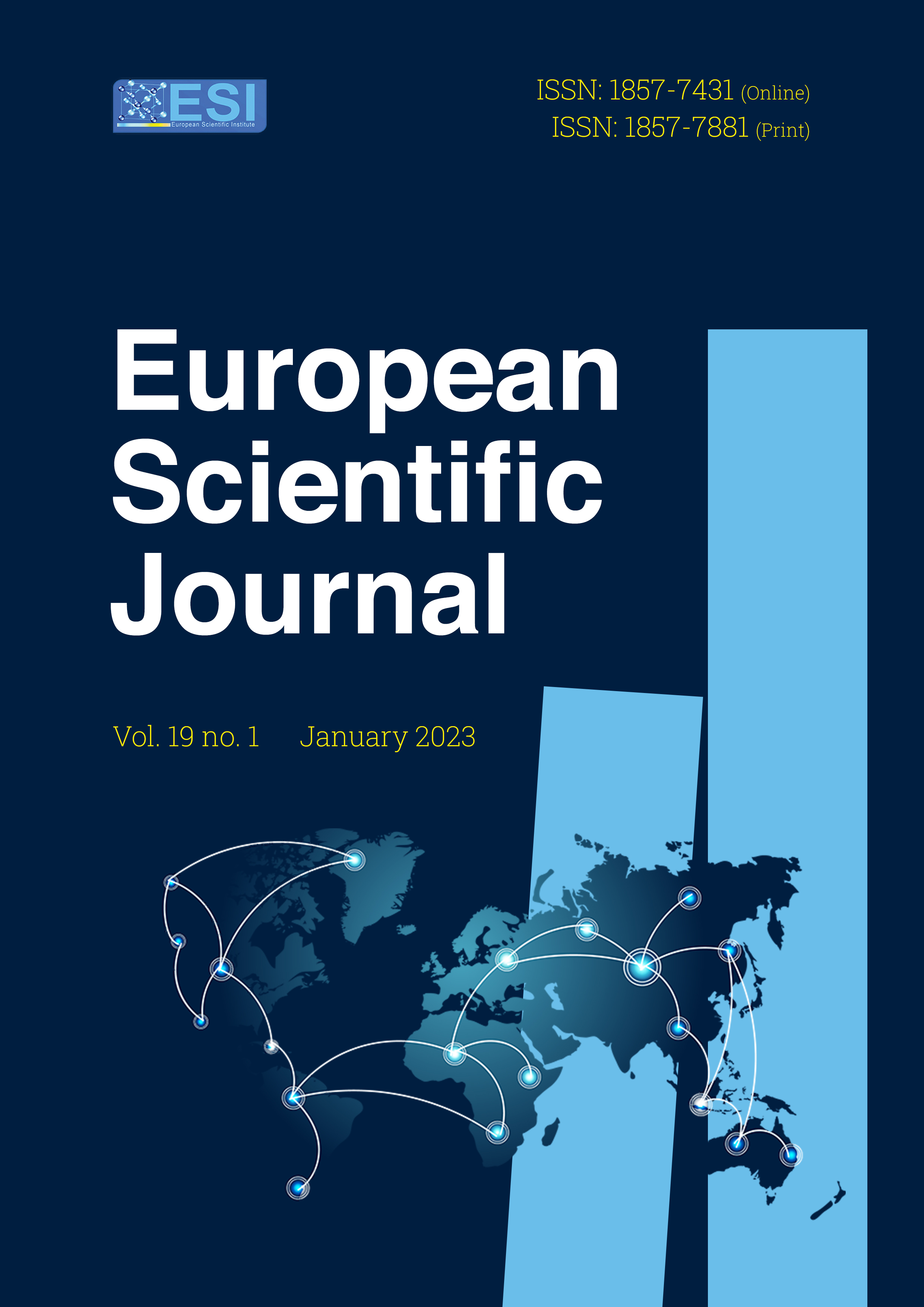Perception, Motivation et Acceptation des Acteurs de l’Unite de Formation et de Recherche des Sciences Medicales d’Abidjan (Ufrsma) Face a l’Integration de la Dormation a Distance (FAD)
Abstract
L’objectif de cette étude qualitative est de recueillir les informations sur la motivation et l’acceptation des acteurs (enseignants et étudiants) par rapport à l’introduction de la formation à distance à l’UFR des sciences médicales d’Abidjan. Il s’agit d’une étude qualitative dont l’enquête a été réalisée du 16 décembre 2019 au 08 janvier 2020 à l’UFR des Sciences Médicales d’Abidjan. Ont été inclus dans l’étude trois administrateurs de l’UFHB, quatre enseignants et trente étudiants de l’UFRSMA. Les données ont été recueillies lors d’entrevues individuelles et de focus group à l’aide de guides d’entrevue. Le postulat de départ stipule que lorsque la perception est positive, les personnes sont plus motivées et l’acceptation est garantie. L’outillage méthodologique utilisé a permis de ressortir les perceptions mitigées des acteurs autour de ce changement pédagogique. Le renforcement de capacités des enseignants en technologie éducative a été enclenché, ainsi tous les enseignants enquêtés avaient des compétences en matière de cours en ligne et étaient favorables à son introduction au sein de l’UFRSMA. Cependant ils souhaitaient que les conditions favorables soient réunies avant la mise en œuvre de la FAD. Quant aux étudiants, ils étaient aussi favorables à l’introduction de la FAD bien que certains demeurent réticents. Comme les enseignants, ils ont évoqué la nécessité de réunir toutes les conditions essentielles avant le démarrage de la FAD. La théorie de la cognition sociale d’Albert Bandura est la théorie de référence. Elle permet de comprendre qu’il existe bien une relation entre la perception, la motivation et l’acceptation de l’individu face à une activité ou un projet. En d’autres termes, les acteurs éducatifs de l'UFRSMA pour accepter l'enseignement en ligne doivent être au minimum engagés, mobilisés et cette mobilisation est étroitement liée au degré de réussite potentiel qu’ils attendent.
The objective of this qualitative study is to collect information on the motivation and acceptance of stakeholders (teachers and students) in relation to the introduction of distance learning at the UFR of Medical Sciences of Abidjan. This is a qualitative study whose survey was conducted from 16 December 2019 to 08 January 2020 at the UFR of Medical Sciences of Abidjan. Three UFHB administrators, four teachers and thirty UFRSMA students were included in the study. Data were collected through individual and focus group interviews using interview guides. The starting point was the assumption that when perceptions are positive, people are more motivated and acceptance is guaranteed. The methodological tool used allowed us to highlight the mixed perceptions of the actors around this pedagogical change. The capacity building of teachers in educational technology had been initiated, and all the teachers surveyed had skills in online courses and were in favour of their introduction at UFRSMA. However, they wanted the right conditions to be in place before the implementation of ADF. As for the students, they were also in favour of the introduction of ADF, although some remained reluctant. Like the teachers, they mentioned the need to have all the essential conditions in place before starting ADF. Albert Bandura's theory of social cognition is the reference theory. It allows us to understand that there is a relationship between the individual's perception, motivation and acceptance of an activity or project. In other words, in order to accept e-learning, UFRSMA's educational actors must be at least committed, mobilised and this mobilisation is closely linked to the degree of potential success they expect.
Downloads
PlumX Statistics
References
2. BANDURA A. Auto-efficacité. (2007, 2010). Le sentiment d’efficacité personnelle, Editions de Boeck, 1ère édition : 2007, 2e édition : 2010.
3. BEZUIDENHOUT, A. (2015). Implications for academic workload of the changing role of distance educators. Distance Education, 36, 246–262. doi:10.1080/01587919.2015.1055055
4. DE BILLY CLAIRE & al (2016). Comportement Humain et organisation, de, édition -6e édition, p.615-625
5. DAVIS, F. (1986). A technology acceptance model for empirically testing new end-user information systems: theory and result. Unpublished doctoral dissertation, MIT Sloan School of Management, Cambridge, MA.
6. FIRAT M. (2017). Reflections from dual-mode alumni on the differences between distance and F2F education. Open Learning: The Journal of Open, Distance and e-Learning, 32, 177–187. doi:10.1080/ 02680513.2017.1316186.
7. GIBSON, J. J. (1950). The perception of the visual world. Boston: Houghton Mifflin. GIBSON, J. J. (1961). Ecological Optics. Vision Research , 1, 253-262.
8. GIBSON, J. J. (1966). The senses considered as perceptual systems. Boston: Houghton Mifflin.
9. GIBSON, J. J. (1977). The theory of affordances. In R. Shaw, & J. Bransford (Eds.), Perceiving, acting, and knowing: Toward an ecological psychology (pp. 67-82). Hillsdale, NJ: Lawrence Erlbaum Associates, Inc.
10. GIBSON, J. J. (1986). The Ecological Approach to visual perception. Hillsdale, NJ: Lawrence Erlbaum Associates, Inc. (Original work published in 1979).
11. KANWAR, A. S., Carr, A., Ortlieb, K., & Mohee, R. (2018). Opportunities and challenges for campus-based universities in Africa to translate into dual-mode delivery. Distance Education, 39(2), 140‑158. https://doi.org/10.1080/01587919.2018.1457944
12. MOORE M. G; Kearsley G (2012). Distance Education: A Systems View of Online Learning. Third Edition. 361 pages.
13. RHEAUME, J. (2016). Changement, Collection : Questions de société; Éditeur : Érès, pp 75 à 84.
14. WISDOM, J. P., Chor, K. H., Hoagwood, K. E., & Horwitz, S. M. (2014). Innovation adoption: A review of theories and constructs. Administration and Policy in Mental Health and Mental Health Services Research, 41, 480–502. doi:10.1007/s10488-013-0486-4
15. YRJÖ E et ANNALISA S (2013). La volition et l’agentivité transformatrice: perspective théorique de l’activité, Revue internationale du CRIRES : innover dans la tradition de Vygotsky (2013) ISSN: 2291-6717, vol 1, no 1, pp. 4-19.
Copyright (c) 2023 Dosso Binaté Namodé Alice, Sassor Odile Purifine Ake

This work is licensed under a Creative Commons Attribution-NonCommercial-NoDerivatives 4.0 International License.








